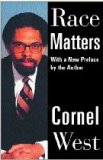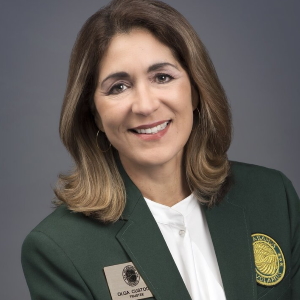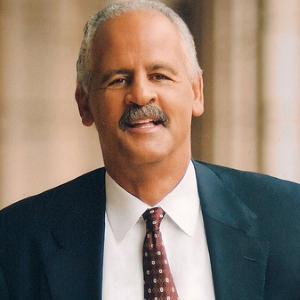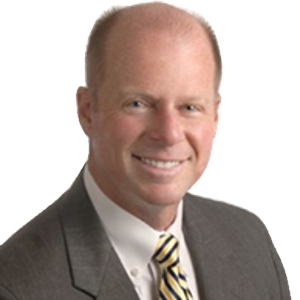Cornel West Speaker Biography
Renowed Public Intellectual, Professor, and Groundbreaking Author of Race Matters and Democracy Matters
Cornel West stands as a prominent and provocative intellectual. Currently, Professor West holds the distinguished Dietrich Bonhoeffer Chair at Union Theological Seminary in New York City, an institution where he has previously lent his expertise. Before this appointment, he served as Professor of the Practice of Public Philosophy at Harvard University and holds the esteemed title of Professor Emeritus at Princeton University. Furthermore, his academic journey includes teaching positions at Yale and the University of Paris. Demonstrating his exceptional intellect, Cornel West graduated Magna Cum Laude from Harvard in a remarkable three years and subsequently earned his M.A. and Ph.D. in Philosophy from Princeton. As a powerful advocate and social justice speaker, West consistently challenges conventional thought and inspires critical engagement with pressing societal issues.
Presidential Aspirations Rooted in Justice
Dr. West is currently running as a presidential candidate for the People’s Party, driven by a profound commitment to equity. In his announcement, West declared his candidacy was for “truth and justice,” aiming to “reintroduce America to the best of itself.” Consequently, his platform focuses on crucial issues such as ending poverty and mass incarceration, ceasing wars and ecological collapse, and guaranteeing fundamental rights like housing, healthcare, education, and living wages for all. This pursuit of systemic change underscores his role as a leading voice for social justice and human rights.
Influential Books on Race, Democracy, and Prophetic Leadership
He is a prolific author, having penned 20 books and edited 13 others. While widely recognized for his seminal works Race Matters and Democracy Matters, as well as his poignant memoir, Brother West: Living and Loving Out Loud, his recent contributions include Black Prophetic Fire. This insightful work offers a fresh perspective on six pivotal African American leaders, namely Frederick Douglass, W. E. B. Du Bois, Martin Luther King Jr., Ella Baker, Malcolm X, and Ida B. Wells. Additionally, The Radical King is a curated collection of Dr. King’s writings, introduced by Professor West, aiming to reclaim King’s prophetic and radical vision as both a civil rights leader and a broader human rights activist. These literary contributions solidify his standing as a significant scholar and advocate for social justice.
Media Presence and Engagement with Critical Issues
Cornel West frequently appears on prominent media platforms such as Real Time with Bill Maher, The Colbert Report, CNN, and C-SPAN. Moreover, he engages in numerous speaking engagements, addressing diverse audiences on a wide spectrum of critical subjects. These topics range from the urgent need for racial justice and the importance of queer rights to the imperative of climate justice. His consistent presence in public discourse highlights his commitment to raising awareness and fostering dialogue on crucial social issues.
Film Appearances and Documentary Contributions
He made his debut in the influential film The Matrix and served as a commentator alongside Ken Wilbur on the official trilogy released in 2004. Furthermore, his insightful perspectives have been featured in over 25 documentaries and films, including Examined Life, Call & Response, Sidewalk, and Stand. These diverse media appearances demonstrate his ability to connect with a wide audience and engage in meaningful conversations about societal challenges.
Spoken Word Albums and Musical Collaborations
Demonstrating his multifaceted talents, Cornel West has also released three spoken word albums, including Never Forget, a collaborative project featuring renowned artists such as Prince, Jill Scott, Andre 3000, Talib Kweli, KRS-One, and the late Gerald Levert. Additionally, his spoken word interludes were featured on Terence Blanchard’s Grammy-winning album Choices, The Cornel West Theory’s Second Rome, Raheem DeVaughn’s Grammy-nominated Love & War: Masterpeace, and most recently on Bootsy Collins’ The Funk Capital of the World. These artistic endeavors further amplify his voice and message of social justice through creative expression.
Deep Involvement in Social Justice Movements
Deeply committed to grassroots activism, he has been actively involved in the Black Lives Matter protests and was among those arrested in Ferguson in 2015. As a passionate social justice speaker, Cornel West utilizes his writings, orations, music, and film appearances to communicate his powerful message. Furthermore, he stands in solidarity with various groups and faith communities dedicated to the pursuit of justice, striving to keep alive the transformative legacy of Martin Luther King Jr.—a legacy centered on truth-telling and bearing witness to love and justice.
Cornel West Speaking Topics
The Profound Desire For Justice
In a time when people are hungry for deeper democracy and equality, justice becomes a crucial factor in attaining these ideals, according to Dr. Cornel West. What is required of citizens in the pursuit of attaining justice is connecting, linking and coalescing our collective struggles, whether economic, racial, sexual, global or otherwise. But how do we bring people together in the name of justice when inequality still prevails and so many remain isolated or locked inside their own personal struggles? In this presentation rooted in current events as well as historical precedents, Dr. West examines ways we can unite and effectuate justice in order to live together harmoniously for the greater good, united in a higher cause on grounds that are moral as well as spiritual.
Critical Thinking and the Cultivation of Your True Self
Education, according to Dr. Cornel West, is central to the future of the nation and species. In this presentation on cultivating critical thinking, which is integral to the maturation of the soul, Cornel West distinguishes between education – the formation of attention so you can focus on the things that matter to you most – and mere schooling, or gaining access to skills without the transformation that comes with an effective education. He offers profound insight into refining one's true self by possessing the simple courage to love, to stay connected to the humanity of others regardless of their color, creed, culture or civilization, and to stay immersed in the arts, whether music, painting, dancing or drawing, because imagination and empathy play a key role in creating deeper, fuller selves. In Dr. West's eyes, education gives us the courage to hope and lends a sense of possibility no matter how dark things become – so that we can focus on what really matters in life, whether it's joy, love, fidelity or service to others.
Love Warriors, Moral Titans and Critical Thinkers: Three Prophetic Figures You Need To Know
In this presentation Dr. Cornel West examines three crucial figures from recent history that he believes the younger generation needs to know more about. Starting with Martin Luther King, Jr., and delving well beyond "I have a dream," West argues that King wasn't simply fighting racism, but also poverty, militarism and materialism, or the emptiness of the soul. Next he examines the Prophetic Judaism of King's friend and mentor, Rabbi Abraham Joshua Heshel, who advocated for anyone who was dehumanized or devalued, including the working poor. Finally, he reexamines the life and work of Dorothy Day, the journalist and activist who went on to found the Catholic Worker's Movement. In many ways a precursor to Pope Francis, Day embodied similar virtues, including direct aid to the poor and homeless. West demonstrates how all three of these towering figures – described as "love warriors, moral titans and critical thinkers" – are as vital to society today as they were during previous decades.
Living Through Our Leaders: The Search For Black Prophetic Fire
Examining the lives of some of his personal heroes across a variety of disciplines and pursuits – bearers of what he calls Black Prophetic Fire, towering figures who changed the world – Dr. Cornel West considers the life and work of such luminaries as Ida B. Wells, A. Philip Randolph, Fannie Lou Hamer, Dr. Martin Luther King, Jr., John Coltrane, Max Roach, Gil Scott-Heron, Curtis Mayfield and others. He locates a common denominator in these prophets including a hypersensitivity to the weak and vulnerable that produces a righteous indignation in the face of a callous status quo, making these names as vital to the current age as they were in their own time. By revisiting these names and the fire they brought to their age, which he argues is alive and well in the current generation, Dr. West encourages audiences to stoke the fire as they did – by bearing witness, taking risks, cutting against the grain and telling the truth, not in a spirit of self-righteousness, but as a calling to make the world a better place in generations to come.
A CIVIL DISCOURSE: A Discussion with Professors Robert George and Cornel West (Live or Virtual)
A discussion about freedom of speech, freedom of thought, the Black Lives Matter movement, and the cancel culture with Professors Robert George of Princeton and Cornel West of Harvard: In the aftermath of George Floyd's killing, the country is re-examining fundamental aspects both of our society and how we talk about changing it. In order to undertake that examination in a spirit of honesty and free inquiry, one view holds that participants need to feel free from the danger, and sometimes, as we have seen, the reality, of punishment or intimidation for taking an unpopular point of view. Those holding this view are concerned that we seem to be entering an era of enforced conformity to a new norm—that America is systemically racist, and that a failure to accept and acknowledge this fact is disqualifying from having a place in academia, in public life, or even in the private sector. They are concerned that the radical changes being called for ignore the pillars of the successful American experiment that ultimately led from slavery to the outlawing of racial segregation, and that these changes will do grave harm both to American society as a whole and to the radical changes’ intended beneficiaries. On the other hand, some believe that our society is so inherently degraded by racism that a fundamental change is justified from the old ways of how we have felt we can think and speak about these issues. The thought is that the traditional notions of free speech and free thought are themselves devices that support oppression, and inevitably are employed to prop up established practices and ways of thinking that have created, and perpetuate, racial inequity. This view holds that those who have been harmed by racism are only further harmed by a so-called “balanced” discussion of their grievances. Professors George and West addressed whether both society and the ways in which we can discuss its virtues and its deficiencies, are in need of fundamental change.
Cornel West Books
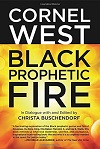
Black Prophetic Fire
Purchase Book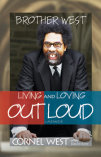
Brother West: Living and Loving Out Loud, A Memoir
Purchase Book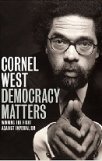
Democracy Matters: Winning the Fight Against Imperialism
Purchase Book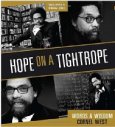
Hope on a Tightrope: Words and Wisdom
Purchase Book